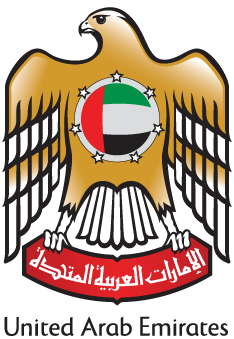RESEARCH AND DEVELOPMENT
The Federal Law by Decree No. (6) of 2009 Concerning the Peaceful Uses of Nuclear Energy empowers FANR to carry out and support research and development studies relevant to FANR’s scope of work as well as to initiate and coordinate safety-related research and development work with other authorities. Accordingly FANR actively collaborates with firms from responsible nations with the aim of developing research and development capabilities within our own nuclear energy programme as well as leveraging the operating experience of other countries on major safety issues. As of 2020, FANR has engaged in 13 research collaboration agreements with countries such as the USA, France, Norway and Belgium.
ATLAS-2
Work continued on three strategic research and development projects in 2020. One female Emirati, who is a FANR nuclear safety assessment engineer, continues to participate in the ATLAS-2 Project alongside the technical project lead. Under the senior specialist’s guidance and mentorship, she has progressed to an advanced level in the use of the thermal hydraulic safety analysis code, RELAP 5, by analysing experiments and tests developed by the Korean Atomic Energy Research Institute. She participated in every ATLAS-2 Project Review Meeting and put FANR on the global stage for thermal hydraulic safety analysis by presenting her analysis findings at the ATLAS Project Review Meetings. On each occasion, she demonstrated continued improvements in skills and knowledge as well as her ability to convey technical analysis to a highly-skilled and knowledgeable audience.
During the review period, FANR participated in both the ‘open’ and ‘closed’ phases of the benchmark test of a vessel header break experiment. An Emirati engineer at FANR submitted the simulation of the closed phase to the organiser and presented the open phase at the 6th Project Review meeting. The same FANR engineer joined a senior engineer from the US Nuclear Regulatory Commission in a special sensitivity study of key parameters using different computer codes to determine the model predictions of these key parameters. One purpose of the study is to understand the reasons why the experimental results are well predicted or otherwise. The same study objective will be proposed for the next ATLAS-3 project with involvement from all members of the project.
Halden Reactor Programme
FANR remained a participant in the Halden Reactor Project in 2020 with the aim of advancing capacity-building initiatives in human and organisational factors as well as in fuel and materials research. Due to Covid-19 restrictions, all meetings and workshops on the Halden Reactor Project were held remotely. FANR colleagues attended two Programme Group meetings (in May and October 2020) and supported the Halden Reactor Project to establish the scope of its research programmes for the upcoming 2021-2023 period.
The Halden Reactor Project continued its restructuring of the research programmes following the closure of the Halden reactor in 2019. The legacy database project, which collates and organises all results and data collected over several years of fuels and materials research, progressed well and a functioning database for member countries is on the near-term horizon. FANR remained a regular contributor to this effort through virtual workshops and meetings. The database will provide an excellent educational resource for FANR and other UAE entities, and will also support improvements to regulatory activities.
The newly-branded and stand-alone Human Technology Organisation research programme was revamped for the 2021-2023 period to include topics related to small modular reactors and cyber security applications for plant operations. In 2020 FANR remained active in supporting the development of the new programme and used past programme deliverables to support capacity-building and internal mentoring initiatives.
Several Emirati employees of FANR participated in the Halden Programme Group, with one of the new members now part of the first Data Legacy Project. Another female Emirati colleague presented her research at the 2020 International Congress on Advances in Nuclear Power Plants and two Emirati colleagues actively participated in the literature review for the first radionuclide dispersion modelling project in the UAE.
Numerical Modelling of Radionuclides Dispersion in the UAE Environment
The Numerical Modelling of Radionuclides Dispersion (MORAD) research programme aims to enhance the capabilities of the UAE to simulate radionuclides dispersion in marine, atmospheric and continental environments taking account the regional and local features.
Among the significant milestones achieved in this project in 2020 were the first results on marine hydrodynamic and dispersion modelling and atmospheric dispersion modelling of radionuclides at regional scale and around the Barakah Nuclear Power Plant. The MORAD project is led by FANR staff who are working with Khalifa University and the French Institute of Radiation Protection and Nuclear Safety (IRSN) to complete the activities detailed in the research project proposal.



